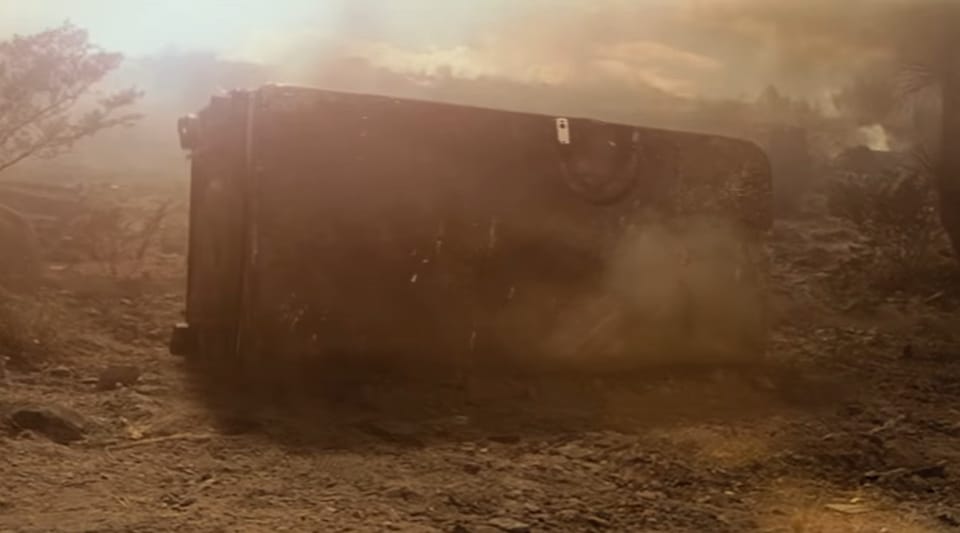The Fridge Game

Working remotely really resonates with me.
Not only do I get to do interesting things while getting paid money, I can do it all from the comfort of my own home. I'm not sure I could ever go back to working out of an office on a regular basis, it would just be too significant of a downgrade.
Remote work does come with some downsides though, like the complete inability to casually connect with people, just because you happen to be sharing the same physical proximity.
That's okay, it just means you need to try a little bit harder to get to know people.
Perhaps by getting them to share personal photos.
Brutal Couple Of Years, Huh
When working remotely, it can be easy to overlook that the people that you work with day-in and day-out are actually people.
They aren't just autonomous worker processes that crunch away in the background, writing Confluence pages and sending you Slack messages; they have lives!
This lack of understanding can result in a lack of connection. In turn, this can cause a variety of problems, like a growing sense of unhappiness and isolation all the way through to a general lack of collaboration on work (which will almost always lead to poor outcomes).
Working in an office and sharing the same physical proximity helps to mitigate the problem, because it's hard to forget that someone is a human being when they are noisily chewing on something at the desk next to you.
But you also just see more of them. More of what they are going through or what they are doing or what sort of things they are interested in. Maybe they turned up tired looking and with a new shirt extolling the virtues of a band or maybe they spent their lunch time hunched over a smartphone watching a sportsball game.
It all matters and it all helps to paint a more complete picture of them as fully realised people, with their own interests and adventures outside of the context of work.
And knowing the full shape of a person helps you to feel more connected to them.
The Space Between Spaces
One of the ways to get to know people better is to encourage them to share something about themselves. It doesn't really matter what the something is, what matters is the sharing and any discussions that it inspires.
If you want to benefit from this sort of connection building when working remotely, you have to put in a bit of legwork to make it happen.
A good example of that is to schedule what we called in our team the fridge game.
It's a simple concept:
- Everyone takes a photo of the inside of their fridge
- One person gathers together all of the photos along with who they belong to
- Everyone gets together in a Zoom meeting or equivalent
- The photos are shown, and everyone guesses whose fridge it is
- Awkward questions, laughter and hilarity ensures
It might not seem like much, but this sort of sharing is illuminating.
I mean, how often do you get to see the inside of someone's fridge? It's a treasure trove of interesting information.
Seven tubs of cottage cheese? What does that mean! Probably protein bulking, so maybe the person is actively looking to build muscle. Maybe not though, maybe they just really like cheese or are planning on making a bunch of cheese-based dishes for a party or something.
Beyond just the fun combination amateur detective work and sheer voyeurism, it encourages people to be present and engaged during remote social sessions, something that can be very difficult to happen organically.
I've Got A Bad Feeling About This
Sharing can be confronting for some people though, and sharing the inside of your fridge, especially if it's something that you already feel bad about for some reason, can be a very uncomfortable experience.
Even if people are comfortable enough with the state of their fridge, they might not trust the rest of the group enough to actually want to participate, feeling like they might be judged for their choices or made fun of.
So, be careful about trying to force participation.
To extend on that point, don't try to do something like this in an environment where the current level of psychological safety and trust is low.
While looking at the contents of someone's fridge isn't quite as personal as sharing medical details or talking about childhood trauma, it is still an opportunity for people to be obnoxious and for the person sharing to feel bad, creating exactly the opposite effect you were aiming for (aka disconnection).
If the group you want to foster connection in lacks psychological safety, start smaller. Maybe try going for a walk at the same time while on a voice call, or playing a game of no-stakes poker.
The fridge game is intended to be a light-hearted way to see inside a part of someone's life that you would never otherwise see, and that sort of sharing should be treated with the appropriate amount of respect
It's About Time You Showed Up
I take absolutely no credit for the specifics of this game. We had a software engineering intern (aka Stephanie Liaw) join our team a year or so back and she introduced us to the idea during one of our Friday social times to great success.
Since then, I've played it again a couple of times with a variety of different groups and I can honestly say it's never been a bad experience, despite the risks I painted above. It's amazing what you can learn about people by looking in their fridge.
To prove that point, here is photo of the inside of my fridge as of earlier this week.
Judge me as you see fit.

Member discussion